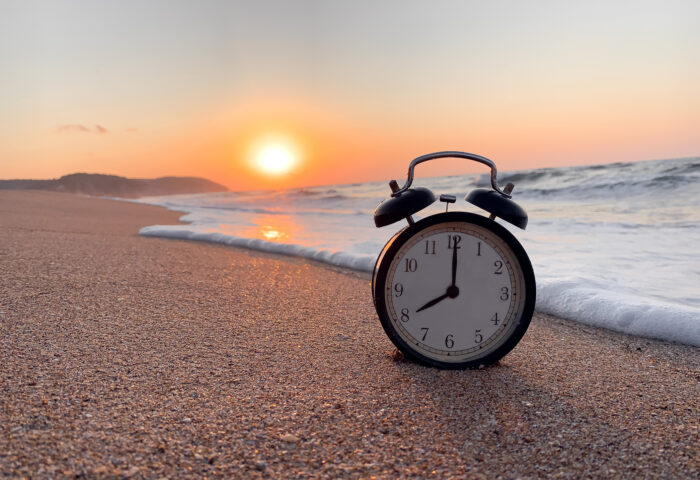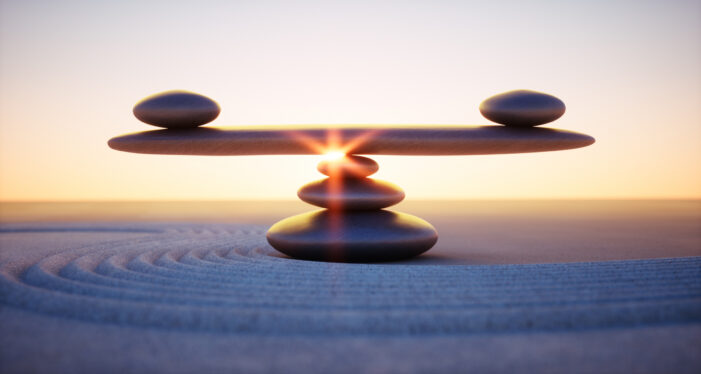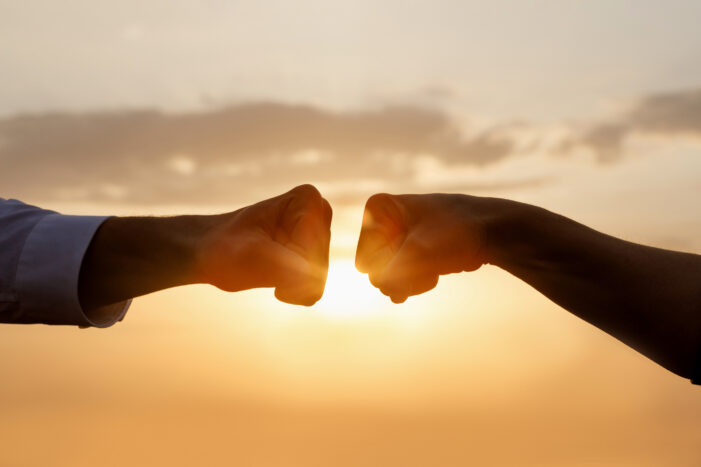
Background on the Chinese organ body clock
Often when I start working with with a new patient, I’ll ask them if they’ve ever heard of the Chinese organ body clock. Typically, the response is an interested, “No, what’s that”? What I’m referring to is an important part of Chinese medicine that is firmly rooted in nature. The Chinese organ body clock refers to the projection of organ system function to our 24-hour clock. Every two hours a different organ system is either at its peak function of activity or its lowest activity or time of rest, just like the tides in the ocean. Aligning our activity to the organ clock can help maximize our health and wellbeing. It can give us clues into the root of illness or dis-ease. At times, it can also provide a simple explanation and solution to health issues.
How the Chinese organ body clock works
In Chinese medicine, the organ cycle starts with the Lungs from 3 a.m. to 5 a.m. and cycles through a different organ system every two hours. It ends with the Liver from 1 a.m. to 3 a.m. After that, the cycle starts all over again. Follow this link for a visual of an organ clock created by Health CMI. Here is a listing of the times for each organ system:
3 a.m. – 5 a.m. : Lung
This is the time when the lung organ system is at its peak. The lungs are associated with the emotion of grief. Often, people who are grieving will find themselves waking up at this time as the lungs process grief. This is a good time to stay in bed and rest to nourish the lung organ system.
5 a.m. – 7 a.m. : Large Intestine
This is the time when the large intestine organ system is at its peak. The large intestine is associated with letting go. We literally let go of what the body does not need when we have a bowel movement. This peak time for the large intestine is when it is easiest to have a bowel movement, and why people who’s bodies are in tune with nature have a bowel movement during this time after they wake up.
7 a.m. – 9 a.m. : Stomach
This is the time when the stomach organ system is at its peak. This is the ideal time to eat a big meal, as the stomach is best able to digest food at this time. Interestingly, the worst time for the stomach to have a big meal is 7 p.pm or later in the evening when the stomach is at its energetic low point. This is why it is recommended to have dinner by 6 p. m. and stop eating for the night by 7 p.m.
9 a.m. – 11 a.m. : Spleen
This is the time when the spleen organ system is at its peak. The spleen helps with the assimilation of nutrients from food to build energy in the body. This is an ideal time to work and tackle your most difficult tasks. Conversely, during 9 p. m. and 11 p. m. the body should be winding down for the night and going to bed.
11 a.m. – 1 p.m. : Heart
This is the time when the heart organ system is at its peak. The heart pumps blood and nutrients throughout the body. This is a good time to eat lunch, and ideally, a lighter meal than eaten at breakfast. When the heart is performing optimally, the shen or spirit is bright, and thinking and speech are clear and effective.
1 p.m. – 3 p.m. : Small Intestine
This is the time when the small intestine organ system is at its peak. The small intestine separates the pure from the impure. In other words, it separates what serves us that we want to hold on to from what does not serve us that we should let go of. This is both physical and mental / emotional. We hold on to nutrition from food, and pass waste material to the large intestine. The small intestine also governs our discernment with thoughts and emotions and helps us sift through what serves us and what does not.
3 p.m. – 5 p.m. : Bladder
This is the time when the bladder organ system is at its peak. The bladder excretes liquid waste from the body. It is important to drink water throughout the day to help the bladder function optimally. Conversely, the weakest time of the the bladder organ system is 3 a.m. to 5 a.m. If the bladder organ system is weak, you may find yourself waking up during this time to urinate.
5 p.m. – 7 p.m. : Kidney
This is the time when the kidney organ system is at its peak. The kidneys filter fluids and maintain a healthy chemical balance in the blood. This a great time to have a walk after eating dinner to help with circulation and digestion. Gentle stretching is also helpful during this time. The weakest time of the kidney organ system is from 5 a.m. through 7 a.m. If you find yourself having trouble getting out of bed during this time, it may indicate that your kidney organ system is deficient from an energetic perspective.
7 p.m. – 9 p.m. : Xin Bao / Pericardium
This is the time when the xin bao or pericardium organ system is at its peak. In Chinese, xin bao translates to “heart envelope”, and it refers to the pericardium that wraps around the heart. The pericardium protects the heart, and in Chinese medicine it also relates to circulation. This is an optimal time of day for conception. The weakest time of this organ system is between 7 a.m. and 9 a.m, and it has been shown that heart attacks are more likely to occur during this time. It is believed in Chinese medicine that this is because the pericardium, or heart protector, is at its weakest during this time.
9 p.m. – 11 p.m. : San Jiao / Triple Burner
This is the time when the san jiao or triple burner organ system is at its peak. In Chinese, san jiao translates to “three burners”, and it refers to the three places in the body where energy is transformed. San jiao is related to metabolism as well as circulation. In Chinese medicine, it is recommended to go to sleep by 10 p.m. This allows the san jiao to work on metabolizing everything that was taken in during the day and perform repair and regeneration functions.
11 p.m. – 1 a.m. : Gall Bladder
This is the time when the gall bladder organ system is at its peak. The gall bladder is responsible for storing and excreting bile which is used to break down fat. This is a very important time to be asleep so that the gall bladder organ system can focus on working with bile. If your gall bladder is having trouble dealing with a fatty meal, you might find yourself waking up and feeling restless or uncomfortable during this time. In Chinese medicine, it is said that the gall bladder pulls blood from the sinews and sends the blood to the liver to be detoxified. Aches and pains may be felt in the morning if the gall bladder is not able to complete this activity overnight.
1 a.m. – 3 a.m. : Liver
This is the time when the liver organ system is at its peak. A primary function of the liver is to store, cleanse, and detoxify the blood. In Chinese medicine, it also regulates the healthy flow of energy through the body. It is extremely important to be asleep during this time so the liver can focus on these important functions. If you wake up during this time, it could be because of something energetically effecting your liver organ system. The emotion associated with the liver organ system is anger, which is also frustration and rage. Often these emotions are held in rather than expressed and can affect the liver and sleep.
Influence on health and well-being
People are often really interested to learn about the Chinese organ body clock and how it can correlate to health and well-being. Understanding the details of what our bodies are focused on during different intervals of the day help us understand a lot of common advice, like why is so important to try to be in bed and go to sleep by 10 p.m.
An interesting case of night sweats
I saw a new patient recently who was having a lot of hot flashes and sweating at night that were preventing her from sleeping. An obvious conclusion might be that this was a symptom of menopause, but this was not the case. It turns out that she was eating dinner around 9 p.m. to 10 p.m., and she was eating spicy food during this time. Just when her body wanted to wind down and rest, it was given a big task of digesting a spicy meal. This disturbed her sleep and made it difficult for her to rest. She altered her diet to have an earlier dinner without spicy food and found that her hot flashes abated and her sleep improved.
Alcohol and sleep quality
Many people believe that consuming alcohol in the evening helps them wind down and is beneficial to their sleep. They tell me they don’t understand why they wake up in the middle of the night. They can fall asleep easily but they have trouble staying asleep. I ask them if they notice what time they are waking up. Their response is usually sometime between 1 a.m. and 3 a.m. As you read earlier, this is “liver time”. In many cases, while the alcohol might help them slow down and relax which may help them fall asleep, the liver then gets agitated with processing the alcohol and causes them to wake up. Abstaining from alcohol for a few nights will usually show if this is what’s going on.
These are just a few examples of how fascinating the Chinese organ body clock is.
Want to talk about how acupuncture and Chinese medicine can help you? I’d love to hear from you. Reach out and email me through our website or call or text 910-622-4269.
About the Author
Ericca Burke is the owner of HAVEN Acupuncture & Chinese Medicine where she provides acupuncture and Chinese medicine treatments in Wilmington, NC. Click this link to read more about Ericca.
About HAVEN Acupuncture & Chinese Medicine in Wilmington, NC
HAVEN Acupuncture & Chinese Medicine is an acupuncture and Chinese medicine practice located in Wilmington, NC just minutes from beautiful Wrightsville Beach. Click this link for contact information and directions. Click this link for a listing and description of services offered.



